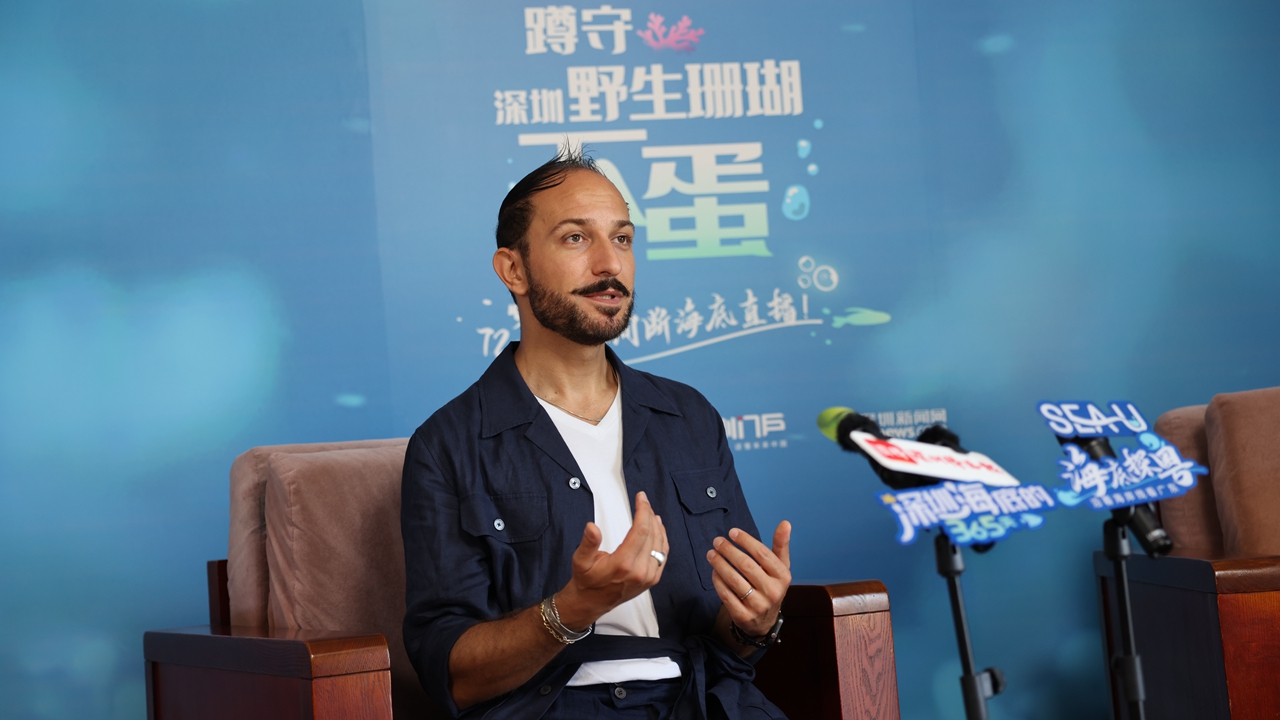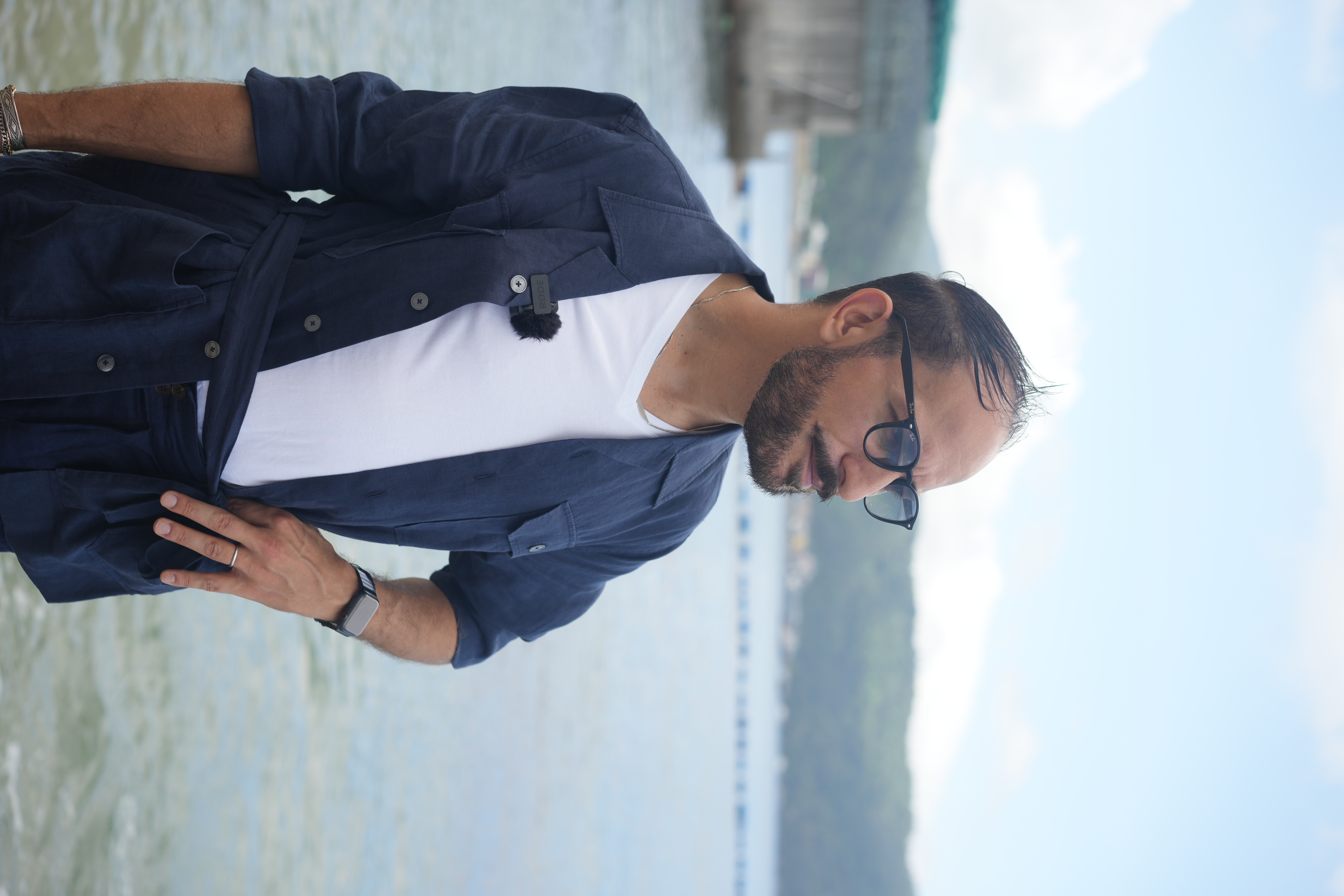Italian professor committed to tackling ecological issues
Writer: Chang Zhipeng | Editor: Zhang Chanwen | From: Original | Updated: 2024-02-12
As he nostalgically recalls his first field research trip in Dapeng New Area, where he searched for corals near an island, Matteo Convertino, an associate professor of Ecosystem Science and Engineering at Tsinghua Shenzhen International Graduate School, vividly remembers the surprise and fascination he felt when a wild pig swam in front of their boat. This encounter showcased the benign ecology of Dapeng and Shenzhen.
Ecosystem design and engineering are among Convertino’s primary research focuses at the university, where he leads a research group of approximately 15 Ph.D. and master’s students.

Matteo Convertino at a livestreaming event on corals spawning in Dapeng New Area. Photos by Liu Xudong
“Our work revolves around understanding how nature functions, such as water, ecology, species, habitat, and climate, and how we can manipulate these elements to create value for humanity and the environment,” Convertino explained, adding that their research team is endeavoring to devise solutions for Shenzhen, the Guangdong-Hong Kong-Macao Greater Bay Area, China, and the world at large.
“Our goal is to mitigate climate stress, tackling issues like floods, droughts, and water scarcity through the promotion of various climate action plans. I believe that Shenzhen is unique in how much of its nature is constructed,” he further elaborated.
“Take Shenzhen Talent Park, for instance; here, nature has been built from the ground up, and we can enjoy our daily life while repopulating various species in an urban environment. Furthermore, the international mangrove protection center in Futian is equally vital; it serves as an icon for the city and brings much-needed attention to the coastal ecosystem. It also facilitates connections and interactions between the mangroves and many other species,” Convertino added.

Convertino in Dapeng New Area.
According to Convertino, he is fond of Shenzhen’s weather and appreciates being able to travel from the mountain to the coastline in just 20 minutes, thanks to the city’s Mountain-Sea Vistas initiative.
In terms of his New Year’s wishes, Convertino hopes that the plans they have developed will be implemented soon.
“I would like to see those plans realized, such as oyster restoration, coral restoration, and the creation of a new ecological corridor. These efforts are particularly crucial and can be adopted by global cities facing similar environmental challenges,” he emphasized.